Nanoparticles are miniscule particles of matter too small to measure with most conventional air quality instruments. Composite of various materials, nanoparticles occur most commonly in:
- Public areas with heavy traffic (thanks to diesel soot emissions).
- Industrial workstations (metal oxide particles and phenols).
- Commercial offices (toner dust from printers and computer devices).
This means nanoparticles are around us constantly, nearly everywhere we go. Unfortunately certain types of these particles can be hazardous to health in large quantities. That's why nanoparticle measurement instruments are crucial to monitoring air quality.
Why is specialist measurement equipment vital?
The various spread and compositions of nanoparticles make them challenging to record with most measurement technology. For example, conventional particle counters are sensitive to movement vibrations, can only function in certain positions and require additional operating media, all of which makes measuring nanoparticle levels time consuming and challenging.
Specialised nanoparticle instruments offer users the ability to precisely capture personal air exposure data in real-time. High quality equipment also affords faster verification of filter efficiency and easy monitoring of air contaminants in one compact solution.
Testo's answer to nanoparticle measurement
Testo supplies several portable nanoparticle measurement systems to help operators gauge air quality and contaminant levels, enabling faster and more reliable risk assessment ability.
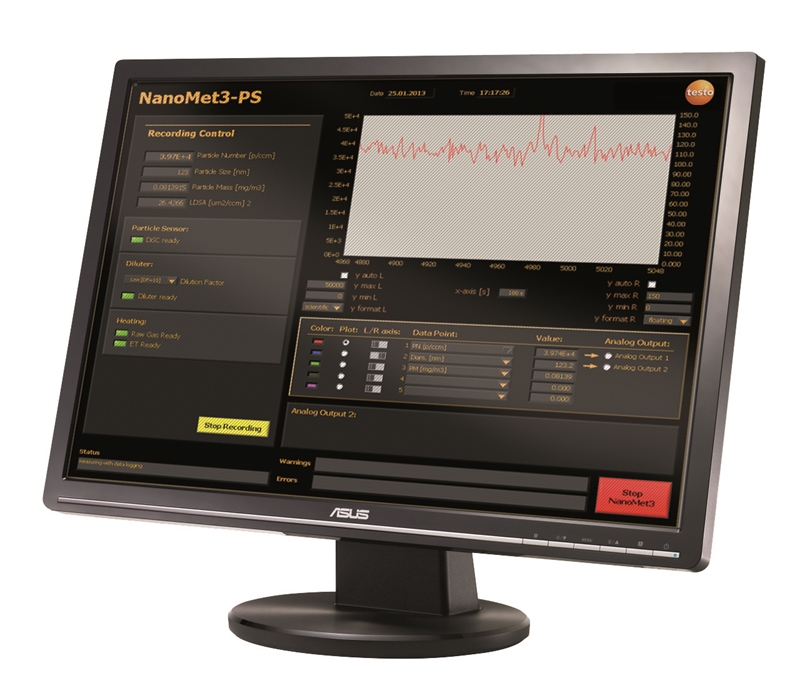
Testo's NanoMet3 instrument
The testo NanoMet3 was developed for measuring air quality in real driving conditions. Diesel soot and other contaminants from engine combustion are risks to air quality – and Testo's NanoMet3 is the perfect instrument for tracking the environmental impact of this change. The system dilutes particle concentrations with a rotary disc diluter while simultaneously removing volatile components through an integrated evaporation tube. This enables more accurate measurement of the key parameters for assessing air quality.
Testo's DiSCmini instrument
The testo DiSCmini is a general application for measuring nanoparticle dispersion. Health risks such as particle concentration and lung deposited surface area (LDSA) are measured every second. This gives operators improved insight into working environment air quality.
Testo's solution is:
- Easy to use, so operators can begin analysis without presetting or calibration.
- Mobile, as it requires no extra operating media to start recording data
- Robust. Unlike most counters, the DiSCmini nanoparticle instrument is not affected by vibrations and can be operated in any position.
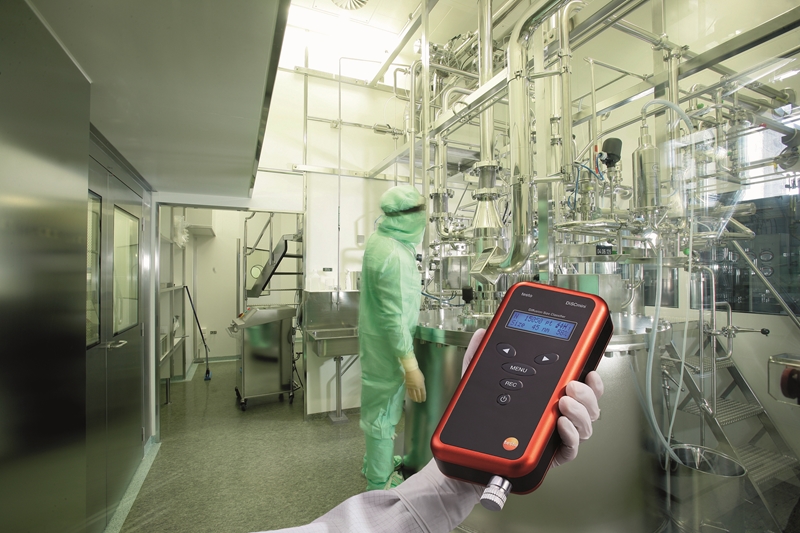
Testo's nanoparticle instruments in the field
Demonstrating how these nanoparticle instruments work in the field is the most effective means for proving the value of accurately assessing air quality risks. Our NanoMet3 solution has already been widely used in numerous countries to this end, including:
Mexico City, Mexico
The Mexican capital is now home to over 12 million people, according to UN estimates – but Mexico City is also home to 2 million diesel vehicles emitting 3,000 tonnes of particulate matter annually. To monitor this output, council authorities introduced regulations requiring local inspection facilities to measure exhaust gas and particle number concentration.
Testo's local distribution partner proposed the NanoMet3 instrument as a solution. The testo NanoMet3 was integrated into every facility, parallel to the existing exhaust measurement technology. This has enabled local authorities to more accurately gauge nanoparticle concentration and respond accordingly to stabilise levels harmful to human health.
Shenzhen, China
With cities around China battling pollution issues, Shenzhen is a glowing example of dedication to better air quality. This is flagshipped by the city's 'Atmospheric Environmental Quality Improvement Plan (2017–2020)', which aims to achieve 98 per cent of days annually with good air quality (measured by World Health Organisation Air Quality Guidelines).
To better measure the nanoparticle emissions of incoming freight ships and the city's vehicles, diesel particle filters have been fitted to much of the city's transport. Testos's NanoMet3 was chosen to monitor emissions figures and provide reliable insight into how the city's environmental improvement plan is progressing.

Striving for better air quality with Testo
Our team's dedication to supplying the highest quality nanoparticle measurement technology has seen us become eminent names worldwide for offering reliable insight into air quality and ways to improve it. For more information on our project work, contact Testo today.




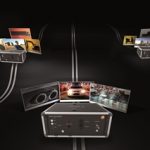
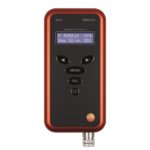
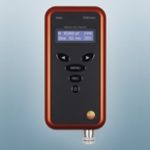
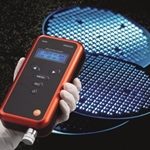

 Reduce cooking oil costs while ensuring quality
Reduce cooking oil costs while ensuring quality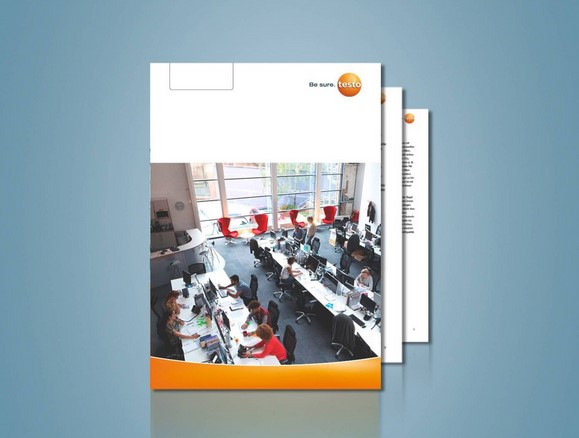 Expert knowledge on CO2 monitoring
Expert knowledge on CO2 monitoring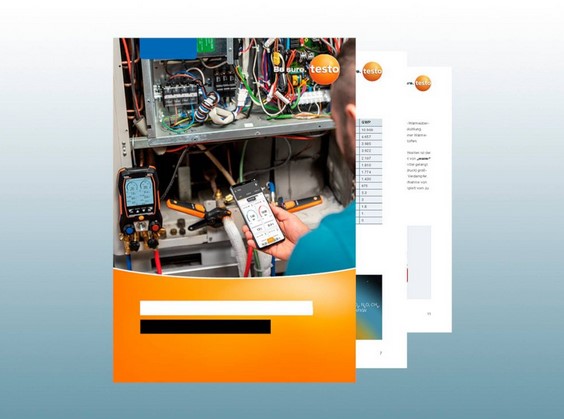 Refrigeration knowledge - in 3 modules
Refrigeration knowledge - in 3 modules



